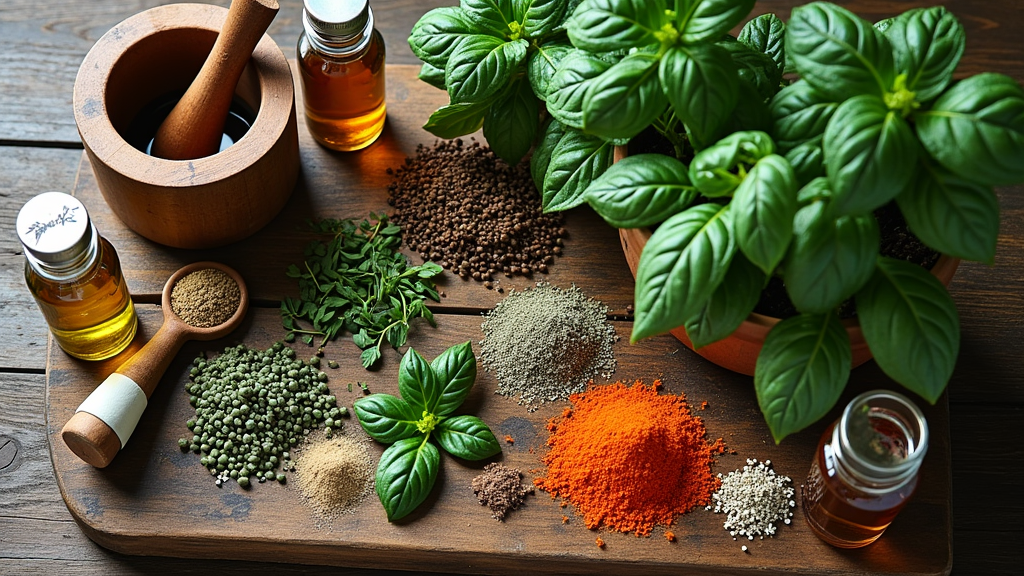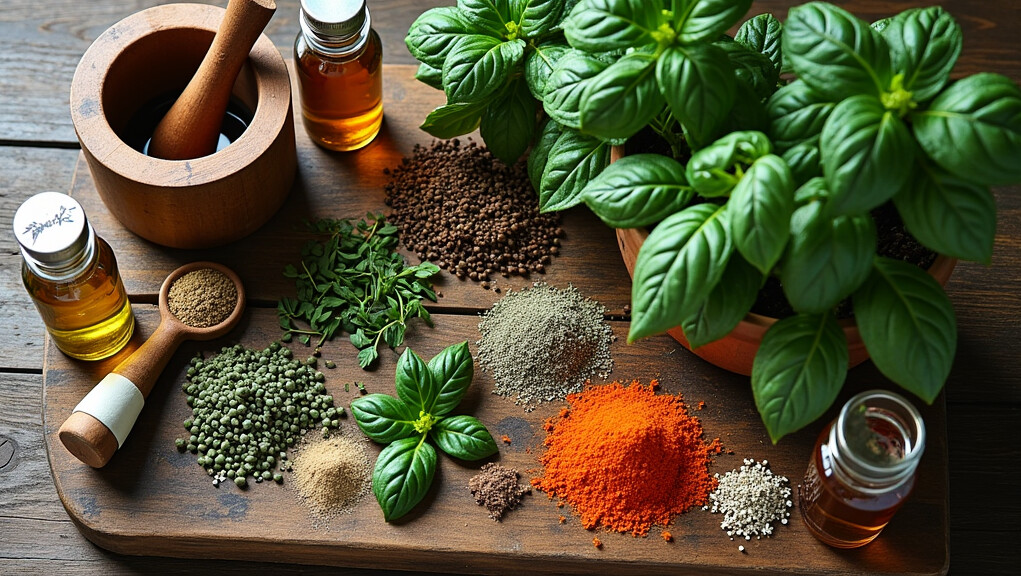Herbal Remedies Digestive Health
Dealing with digestive issues is never fun, and trying to keep your gut in good shape can sometimes feel like a guessing game. Herbal remedies have been around for ages and are still one of the go-to ways people look after their digestive health. I’ve personally found that herbs can make a noticeable difference if you choose them thoughtfully and know a little about how they work.

Why Herbal Remedies for Digestive Health?
Digestive problems can range from occasional bloating and heartburn all the way to ongoing struggles like IBS or chronic constipation. While there are plenty of over-the-counter medicines out there, herbal remedies offer a more natural approach that often comes with extra benefits. For example, they can support your overall gut balance or help calm stress at the same time as they settle your stomach.
When I started looking into herbs for my own irritated stomach, I noticed that many of these plants have been part of traditional medicine for centuries. Check out peppermint, for instance—it shows up in ancient Greek and Egyptian texts for its stomach-calming traits. Today, modern research backs up what those healers already knew. Certain herbs can really play a role in digestive comfort (source).
Getting Started with Herbal Digestive Support
If you’re thinking about trying herbal remedies for digestion, it’s helpful to start with a basic sense of how they work. Herbs can support digestion by soothing inflammation, relaxing intestinal muscles, stimulating digestive secretions, or helping your body break down food better. Each of these functions supports better balance in the gut, which is essential for overall wellness.
Not every herb works the same way, so knowing the basics is pretty handy. Here are some common terms you’ll see as you read more about herbal strategies:
- Carminative: The herb helps relieve gas and bloating (peppermint and fennel fall into this category).
- Bitter: These herbs encourage the flow of digestive juices by stimulating taste buds (picture dandelion or gentian).
- Demulcent: These herbs coat and soothe irritated tissue, like slippery elm or marshmallow root.
- Antispasmodic: They calm muscle spasms in the digestive tract. Peppermint is a classic here as well.
I always suggest starting with one herb at a time so you can see how your body reacts. If you have any health conditions or take medications, always check in with your doctor or a trained herbalist before adding anything new to your routine.
Quick Guide to Popular Herbs for Digestive Health
It’s easy to become overwhelmed by the sheer number of options. With that in mind, I put together a list of my favorite, reliable herbs for supporting everyday digestion. Here’s a summary of why each one is worth checking out:
- Peppermint: One of the most widely studied, peppermint soothes digestive spasms and helps with IBS symptoms. It’s effective as a tea or enteric-coated capsule.
- Fennel: Excellent for fighting bloating and gas, especially after a heavier meal. Fennel seeds make a great tea or can be chewed for a quick fix.
- Ginger: Known for settling upset stomachs and curbing nausea, ginger tea is my go-to after fatty meals or if I’m feeling queasy.
- Chamomile: Gentle and calming, chamomile soothes both the stomach and the nerves. It’s a classic before-bed tea for good reason.
- Licorice Root: Traditionally used for heartburn and ulcers; if you try it, opt for DGL (deglycyrrhizinated licorice) unless guided otherwise by a health professional.
- Dandelion: Works as a mild bitter that gets bile moving, aiding your body in digesting fats.
- Slippery Elm & Marshmallow Root: Both are silky and soothing for irritated stomachs or throats. Perfect if you need gentle support when your gut feels raw.
Things to Think About Before Trying Herbal Remedies
While herbal remedies are generally considered safe when used as directed, there are a few things to keep top of mind:
- Possible Interactions: Herbs can interact with medications. Licorice root, for example, can affect blood pressure or potassium if used excessively.
- Allergies: If you have a history of plant allergies, always test a small amount first or seek advice from someone knowledgeable about herbs.
- Source Quality: Herbs should be fresh or purchased from a reputable place. Old herbs lose their punch, and poor quality can mean unwanted contaminants.
- Form: Herbs come as teas, tinctures, capsules, or powders. The form can affect how quickly and how well they work. Tea is quick, tinctures are stronger, and capsules are very handy if you’re on the move.
Peppermint
Peppermint is probably my favorite herb for crampy, gassy stomachs. Research shows that enteric-coated peppermint oil capsules can bring relief for IBS symptoms by relaxing gut muscles (source). I like to drink peppermint tea after a hefty meal, and it’s really helped with post-meal bloating.
Ginger
Ginger root is a staple in my pantry. It’s long been used to curb nausea and is even helpful for morning sickness. I usually chop or grate a small piece, pour hot water over it, and let it steep for about 10 minutes. The flavor is a bit spicy but very soothing.
Fennel
Fennel seeds are superstars when it comes to kicking post-meal bloating and gas. Chewing a few raw seeds or steeping them in a cup of hot water for tea can make a big difference, especially after spicy or heavy foods. Fennel tastes a bit sweet and has an aniselike note that’s refreshing.
Chamomile
Chamomile is gentle but powerful for calming upset stomachs and helping you unwind. I like to sip it in the evening or when I’m tense or before bed. Chamomile can also ease IBS-related discomfort (source).
Practical Tips for Using Herbs for Digestive Support
Getting into the habit of using herbs can be very straightforward. Here’s what works for me and what I often recommend for others:
- Start with teas: Herbal teas are easy to brew, soothing, and allow you to try single herbs or blends. They also help keep you hydrated.
- Try tinctures or capsules: When I travel or need something concentrated, tinctures and capsules are handy and effective.
- Timing matters: I like carminative teas after meals to prevent bloating, and bitters about 10-15 minutes before eating to “wake up” my digestive system.
- Be patient: Some herbs act quickly (ginger for nausea, for example), but for ongoing discomfort it can take one to two weeks of consistent use to notice a significant improvement.
Real-World Examples of Herbal Digestive Remedies
Herbs aren’t just for home kitchens—they show up in mainstream products and are major parts of worldwide traditions. For instance:
- Peppermint and ginger chews are found in many pharmacies to help with motion sickness or queasiness.
- Traditional Chinese Medicine uses licorice, ginger, and many other herbs in blends to help create balance in the gut.
- Ayurvedic practitioners rely on fennel, Triphala, and cumin for keeping digestive “fire” strong.
I know several folks who keep a little “digestive tea kit” in their bags for travel or on hectic workdays so they always have SOS support on hand.
Frequently Asked Questions
Here are some of the common questions people ask about herbal digestive remedies:
Question: Can I use multiple herbs at once?
Answer: Yes, lots of blends mix several herbs to target different digestive needs. You might use a premade blend or slowly add one herb at a time to see what suits you best.
Question: Are herbal teas just as effective as capsules or tinctures?
Answer: Teas are ideal for gentle, daily support and help with hydration. For tougher problems, concentrated tinctures or capsules often provide a quicker boost.
Question: How long do herbs take to work?
Answer: Some herbs, like ginger, act within minutes (especially for nausea or bloating). For more slow-burn results, such as healing gut lining or managing frequent flare-ups, expect a few weeks of steady use.
Question: Are there any herbs to avoid with certain health conditions?
Answer: Yes. For example, anyone with high blood pressure should watch out for non-DGL licorice root, and pregnant folks should look up every herb before use. Always check in with your healthcare provider if you’re ever unsure.
Keeping Your Gut Happy with Herbs
Herbal remedies can be gentle, practical ways to handle daily digestive discomfort and can help maintain gut health over time. For me, sticking with straightforward options like peppermint, ginger, and fennel handles most minor flare-ups without the side effects of big-name medications. Consistency makes a difference, and finding high-quality herbs pays off. Every gut is unique, but trying out a few of these time-tested remedies may help you discover what fits into your daily routine best. This little experiment with trial and error is often all you need to stumble upon your gut’s new best friends and keep feeling your best every day.


This post is a great reminder of how powerful natural remedies can be for gut health. I’ve always leaned toward ginger and peppermint for soothing discomfort, but I didn’t realize how effective fennel and licorice root could be too. Have you found one of these herbs to work better than others, or do you combine a few for the best results?